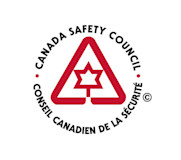
Privacy and security
Protecting your privacy in our digital world
Learn key privacy questions to ask and practical tips to safeguard your personal information.
Read article
Developed in Partnership with Canada Safety Council

With technology advancements and upgrades coming at breakneck speed, there’s always something newer and more up-to-date to make our lives easier. Unfortunately, things that make our lives easier can also make life easier for criminals – notably, fraudsters and identity thieves. To mark this year’s National Senior Safety Week, November 6 – 12, the Canada Safety Council and TELUS are teaming up to shed light on how seniors can keep themselves and their information safe, and out of the hands of criminals.
“Criminals tend to look for the path of least resistance and, too often, that passes through our most vulnerable sections of society,” said Jack Smith, president of the Canada Safety Council. “Seniors seem to be easy targets for a lot of scammers, which is why we feel it’s crucial that we do our part to keep the elderly as informed and prepared as possible to avoid being victimized.”
Check out the infographic to help you guard against identity theft.
When it comes to email scams, fortunately, there are some clues that can indicate if a message is legitimate or an attempted scam. Unlike professional emails, scam emails are often littered with spelling and/or grammatical errors. These messages also frequently come from unknown email addresses, do not address the recipient by name and feature low-quality images.
Additionally, malicious messages may encourage recipients to take urgent actions, involving clicking on links or opening attachments, providing private information, or calling a specific phone number. Unless you’re absolutely certain of a message’s origins, do not download attachments or click on links as they may contain viruses, spyware and malware. Further, refrain from using any method of contact shared in the message. Rather, contact the organization using the phone number or email listed on their website and inquire about the message’s legitimacy. Messages that appear malicious in nature should be reported to the Canadian Anti-Fraud Centre and deleted.
“It is unfortunate that seniors are often the target of cyber scams. Recognizing this vulnerability, we are pleased to team up with the Canada Safety Council to help empower them to stay safe online,” said Nimtaz Kanji, Director, TELUS Wise. “Providing seniors with online safety tips and information will allow them to participate in our digital world without fear, and enable them to take advantage of the positive benefits technology has to offer.”
Over the course of National Senior Safety Week, we’ll be sharing more safety tips relating to smartphones, social networks, and insights on the most common scams impacting seniors. Visit the Canada Safety Council’s website for more safety information and a showcase of safety through the century as the organization celebrates 100 years in safety.
You can also take advantage of TELUS Wise, a free digital safety education program, offering Canadians of all ages interactive and informative workshops and resources. Topics include protecting your online security, privacy and reputation, rising above cyberbullying, and using technology responsibly.
For more information, please contact:
Lewis Smith
Manager, National Programs, Canada Safety Council
613-739-1535 x228
Sacha Gudmundsson
Communications Manager, TELUS
647-472-8856

Learn key privacy questions to ask and practical tips to safeguard your personal information.
Read article
Discover how passwordless authentication is making online life simpler and safer.
Read article
Learn how to protect yourself from Canada Revenue Agency scams.
Read article